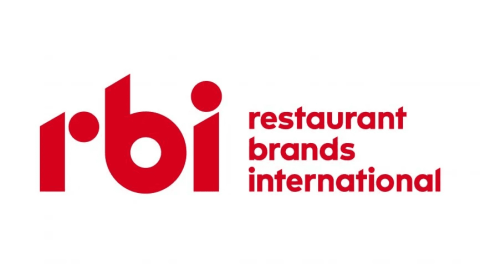Restaurant Brands International (NYSE: QSR) Stock Fair Value at $75: Morningstar Research
Restaurant Brands International (QSR), parent to iconic chains like Burger King, Popeyes, and Tim Hortons, continues to navigate a complex macroeconomic landscape marked by soft consumer spending and uneven regional performance. Morningstar has reiterated its Buy rating, holding its fair value estimate at USD 75 per share, representing modest upside from the recent closing price of USD 67.53. Despite short-term challenges, the firm’s long-term thesis remains supported by its global scale, international expansion strategy, and efforts to improve unit-level economics—particularly within the underperforming Burger King U.S. segment.
Revenue Miss Prompts Cautious Tone, But Cost Discipline Offers Relief
Restaurant Brands' Q1 2025 revenue of USD 2.1 billion fell below Morningstar’s estimate of USD 2.19 billion, while adjusted operating income of USD 539 million trailed the projected USD 615 million. However, a reduction in segment-level G&A expenses by USD 50 million softened the blow. These cost-saving measures, particularly outside of the restaurant holdings segment, highlight RBI’s operational discipline amid macro-driven demand softness.
Revised unit growth guidance—now expected at 3% increase or decrease, down from 5% growth—reflects caution, particularly after the Burger King China acquisition and subsequent restructuring moves. Nevertheless, these steps are viewed positively as a proactive recalibration of the brand’s global footprint.
Comparable Sales Growth Stagnates Amid Economic Uncertainty
Consolidated comparable sales rose just 0.1% in the quarter, a far cry from the 2.2% growth expected by Morningstar. While RBI’s international segment posted a better 2.6% comp growth, it too underperformed relative to expectations. Despite this, the international business remains RBI’s strongest asset, both in terms of resilience and upside.
With 15,639 units abroad (49% of the total portfolio), international growth outpaced North America at 8% vs 0.5% annually from 2021 to 2024. Morningstar projects international systemwide sales to grow at 10% annually through 2029, underpinned by favorable unit economics and proven brand portability.
Tim Hortons Shows Renewed Strength; U.S. Still a Work in Progress
Once RBI’s laggard, Tim Hortons has rebounded, especially in Canada where it commands nearly 25% market share of the QSR segment. The rollout of digital drive-thrus, loyalty programs, and new cold beverages has rejuvenated consumer engagement. Unit-level EBITDA rose 30% in 2023 and another 9% in 2024, restoring profitability after a period of franchisee discontent.
In the U.S., however, Tim Hortons continues to face challenges. Its footprint has shrunk by nearly 25% in recent years, though recent investments hint at a longer-term revival plan.
Burger King U.S.: Turnaround Strategy Faces Uphill Battle
RBI’s flagship burger brand is navigating a slow rebuild. Despite some progress—such as a 50% increase in U.S. franchisee EBITDA in 2023, the brand still lags behind competitors. Unleveraged payback periods remain unattractive, around 10 years, and U.S. store economics trail those of peers like McDonald’s and Wendy’s.
Still, the USD 700 million "Reclaim the Flame" initiative, aimed at refreshing stores and reinvigorating the brand image, shows RBI’s commitment. Morningstar remains cautious but acknowledges that 2.5% average annual growth over the decade is possible if the turnaround sustains momentum.
Popeyes Powers Forward as Growth Engine
Popeyes remains a standout within the RBI portfolio, thanks to its highly successful chicken sandwich launch, which added USD 400,000 in average unit volumes. The brand is experiencing high-teens restaurant margins, with mid-teens cash-on-cash returns supporting accelerated unit growth.
Morningstar sees scope for 1,600 new domestic units by 2034, equating to 4.2% annual net unit growth. Coupled with international deals and menu innovations like wings and shrimp, Popeyes is positioned as a durable growth lever in a saturated U.S. market.
Firehouse Subs: Small, But Profitable
Firehouse Subs, while small, provides RBI exposure to the QSR sandwich vertical with attractive 3-4 year payback periods and solid cash flow metrics. This brand fills a strategic gap in RBI’s portfolio and offers lower buildout costs, making it a franchisee favorite.
Though it contributes marginally to overall revenue today, Morningstar projects 6% annual systemwide sales growth, making it an accretive albeit modest contributor.
Valuation and Competitive Position
Morningstar maintains a fair value estimate of USD 75 per share, implying a Price/Fair Value ratio of 0.90—suggesting modest undervaluation. Compared to peers like McDonald’s (trading above its fair value at USD 313.49 vs fair value of USD 308) and Yum Brands (USD 147.98 vs fair value of USD 142), RBI appears attractively priced.
With a narrow moat, RBI’s core strengths lie in brand recognition, franchise-driven scalability, and global footprint. Morningstar projects systemwide sales to hit USD 80.7 billion by 2034, with 48,500 total units.
Risks and Capital Allocation Considerations
Morningstar assigns a Medium Uncertainty Rating, reflecting risks including:
Pressure on consumer spending due to inflation and economic uncertainty.
Execution risk in brand turnarounds, especially in the U.S.
Labor and regulatory headwinds in multiple regions.
Debt concerns, with net debt/EBITDA at 4.8x, though expected to decline.
The capital allocation rating remains Standard, with mixed success across acquisitions and underinvestment in some banners. However, the 75% dividend payout ratio and USD 10.6 billion in planned capital returns offer yield upside for income-seeking investors.
Strategic Takeaways for Investors
For investors seeking exposure to global QSR growth at a discount, RBI presents a compelling albeit complex opportunity. While U.S. operations—particularly Burger King—remain a drag, international growth, Tim Hortons’ rebound, and Popeyes’ momentum provide substantial upside.
Morningstar’s consistent valuation and confidence in management’s evolving strategy support a Buy rating. However, continued diligence is warranted, especially as macro pressures persist and execution risk in the U.S. lingers.
